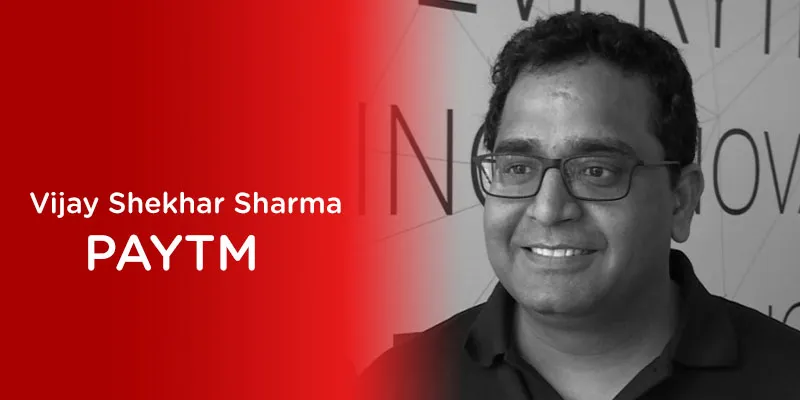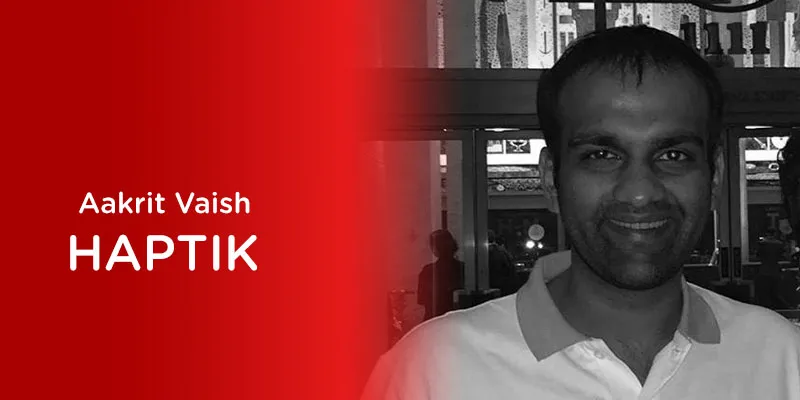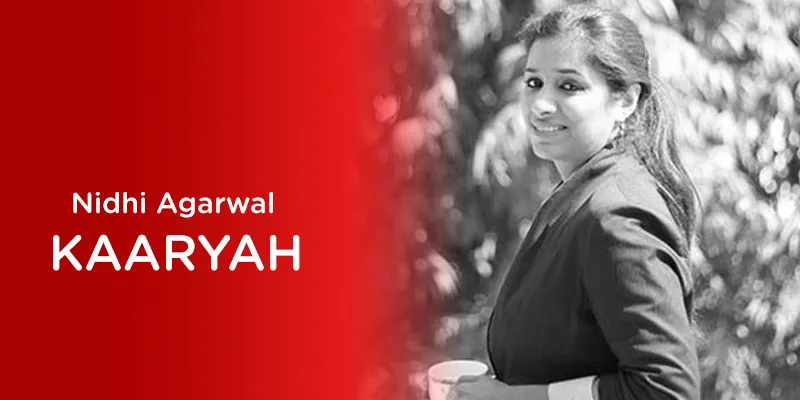Meet 5 entrepreneurs who've lived the NaaSeHaanTak tale in their startup journey
This article is sponsored by Haywards 5000 Hausla Buland Academy.
Today, the Indian startup ecosystem is being watched and analysed closely. While some say all isn’t well, others say it is only a momentary turbulence. Then there are those who believe the ecosystem is poised for a momentous rise.
The fact remains, however, that in less than a decade since the startup wave began sweeping the country, India is now home to unicorns with over billion dollar valuations and thousands of startups that are gaining attention with their innovative ideas and endless zeal. And this charge is being led by entrepreneurs who defy odds and chart their success story unhindered by failures and challenges. Here's a snapshot of the journey of five such entrepreneurs.
#1 Vijay Shekhar Sharma, Paytm
Paytm has been valued at over $3 billion; with over 100 million users. All this in just a little over five years after Vijay Shekhar Sharma launched Paytm in 2010.

To describe this entrepreneur’s story as inspirational would be an understatement. His entrepreneurial journey began with him building a successful content management system along with his college mates, a project that was funded by investors, and later acquired by the India Today Group. The success was short-lived. After selling his first firm, he co-founded One97 Communications Ltd., a mobile value-added services, but in the aftermath of 9/11, the market crashed, so did the business. The outcome was that he was left with no money, forced to use public transport, and lived on two cups of tea. Driven by the belief that ‘winning is about not giving up,’ this entrepreneur sustained the tough times by taking up a job as a consultant. But, with the rising popularity of smartphones, he decided to start another entrepreneurial venture –something that could impact’s people’s lives. And One97 Communications incubated Paytm. Starting off as a prepaid mobile recharge website, Paytm has evolved into one of India’s largest mobile commerce platform. Today, Paytm has secured funding from Jack Ma of Chinese e-commerce giant Alibaba, Ratan Tata, Saif Partners, Intel Capital, and Sify Ventures, and is building India’s most dominant mobile payment and commerce ecosystem.
2. Aakrit Vaish, Haptik
Aakrit Vaish is the CEO and Co-founder of Haptik, a mobile personal assistant service that aims to solve user issues via messaging. The company, which was launched in 2013, was self-funded. But, a year later, the launch of the Haptik app gave the company the traction it needed with positive feedback from users, media, and investors alike. But even with inbound interest from VCs and seed funds, Haptik found it tough to convince investors that it would succeed in India, because a concept like this had never been attempted anywhere in the world. Finally, in September 2014, Haptik raised a $1 million first round of equity financing from Kalaari Capital and an undisclosed Series B round and forged a strategic alliance with Times Internet in April 2016.

Leveraging the strengths of the three hottest trends in Indian technology right now – mobile, messaging, and on-demand services – Haptik has won itself the distinction of being a 'must-have app'. Aakrit, who was an early hire at Flurry, where he founded the business operations team and was instrumental in growing the company from a startup to a multi-million dollar business, has now also turned investor. He says that he is fuelled by the “insane desire to make an impact.”

3. Nidhi Agarwal, Kaaryah
One hundred and thirteen. That’s the number of investor pitches Nidhi Agarwal made over the phone, in-person, and through email over 365 days for her venture, Kaaryah. Nidhi is not a quitter; she persisted. She closed her first round of funding on the 365th day! She then went on to raise her Series A investment from industry stalwarts Ratan Tata, Mohandas Pai, and The Saha Fund.

Kaaryah, started in 2013, is a brand of western, non-casual wear for Indian women focused on providing the best possible fit and aims to bridge the gap between Western formals and the Indian silhouette. Facing the many hurdles in her entrepreneurial journey, there were occasional, fleeting thoughts of “wanting to give up or even shut down the venture” but the strong drive to solve problems and put in everything it takes to make it happen has helped her pull through the rough times. Nidhi believes that as an entrepreneur, “One needs to be patient, and learn how and when one needs to compromise and deal with the crunch in talent and funds. Deciding clearly what one needs to achieve, and investing the right amount of money at the right time is the key to fast growth for any startup,” says Nidhi, adding: “Have faith in your venture and let hard work and determination be your greatest drivers at all times.”
4. Albinder Dhindsa, Grofers
“One year ago, we were two people – trying to convince merchants in Delhi to trust us with their deliveries. Yesterday, we delivered 1,250 orders and 200 Grofers pitched in to make it happen across Bengaluru, Delhi and Mumbai,” reads a Grofers blog post from December 27, 2014. Grofers is an on-demand delivery service that connects consumers with local grocery stores, co-founded by Albinder Dhindsa and Saurabh Kumar in 2013.
Grofers worked on a B2B model for a few months before it transitioned into a B2C model. This transition was brought on by changes in consumer behaviour and technology. However, with the opportunity that came with the transition, there were challenges too. The initial hurdle was mostly associated with convincing people that the idea had merit and they could trust Grofers to do the deliveries for them, says Albinder. And, as the popularity began to grow, the challenges came with scaling up by taking this relatively new business model to new cities and managing growth.

While it was able to raise $46 million in early 2015 from Sequoia Capital and Tiger Global, helping it improve its technology and expand to newer cities, Grofers’ journey has been a roller coaster ride. After raising $120 million funding from Softbank, Sequoia Capital, and Tiger Global, it shut down operations in 10 cities because of low acceptance of its services, management issues, and wanting to focus on serving fewer cities better. This accidental entrepreneur believes that being persistent and trying to survive for as long as possible is important for an entrepreneur. He says that ‘it is easy to create and execute a vision. But, there will be many hurdles and pros and cons to it that will shake your determination. That’s why it is important to not give up!’
5. Sahil Barua, Delhivery
From starting branches in the wrong locations to being stuck with damaged products at the centre, Sahil Barua, co-founder, Delhivery, says that they failed many times, but having learnt the hard way, they started out again.

In the four years after its launch in 2011, logistics startup Delhivery grew 400 percent year-on-year, raising $127.5 million in four rounds from five investors, which included Tiger Global Management, Multiples Alternate Asset Management, Times Internet Limited, and Nexus Venture Partners. Today, it operates out of 350 cities, catering to 200,000 shipments a day.
The entrepreneur who was featured in the Forbes 30 under 30 list in 2015 believes that it is pertinent for businesses to embrace technology and continue to reinvent the wheel, irrespective of the kind of business. Starting out as a hyperlocal express delivery service for brick-and-mortar stores, with just a handful of delivery boys, Delhivery has evolved into a complete supply-chain solution providing core e-commerce technology and logistics services for everyone in the ecosystem. But this came only when Sahil refused to give in to the naysayers who said his idea wouldn’t work and others who refused to join the team as they didn’t think Delhivery had a huge growth proposition.
Watch the video and see how a strong resolve can make your dreams can come true.







